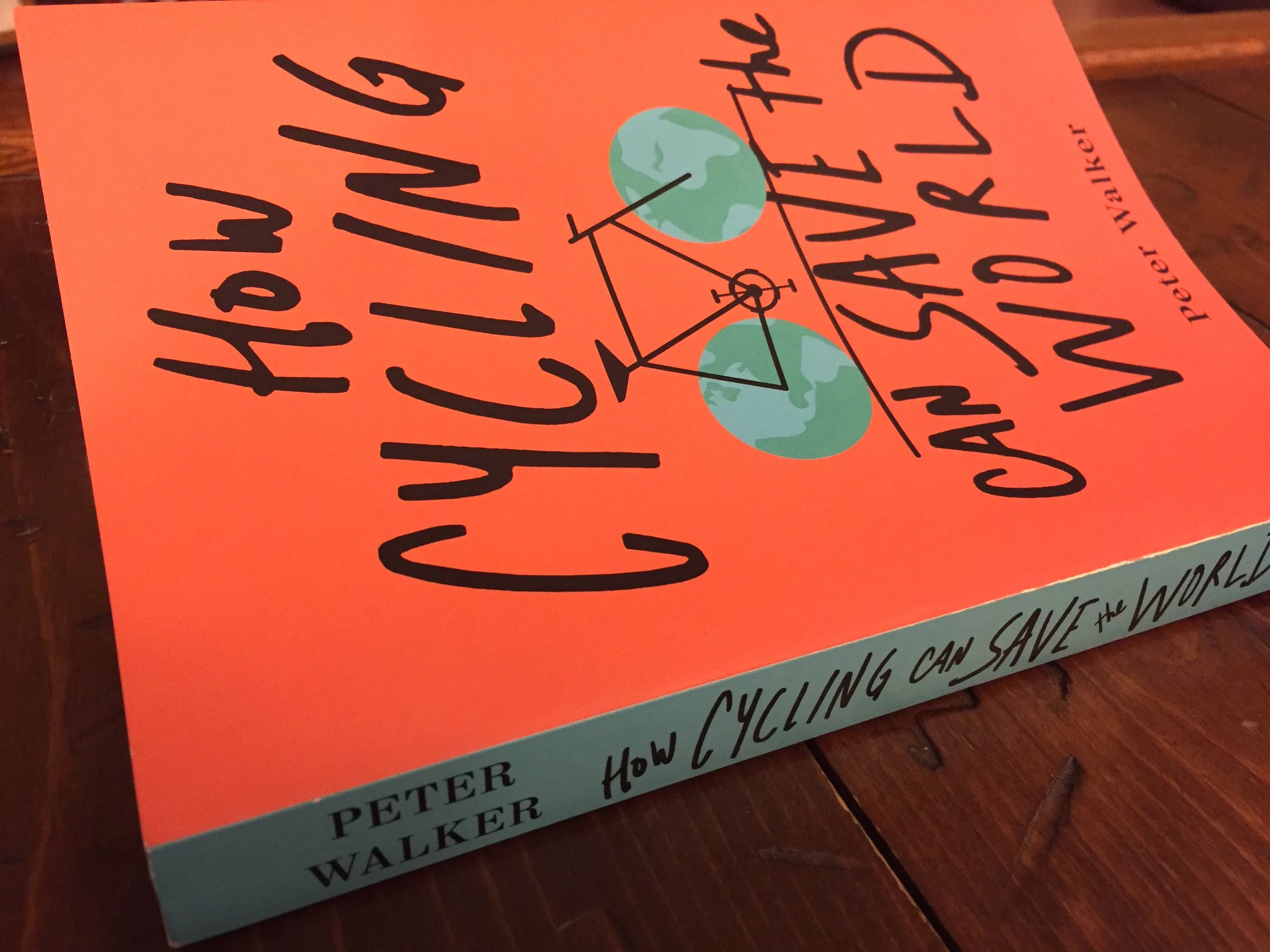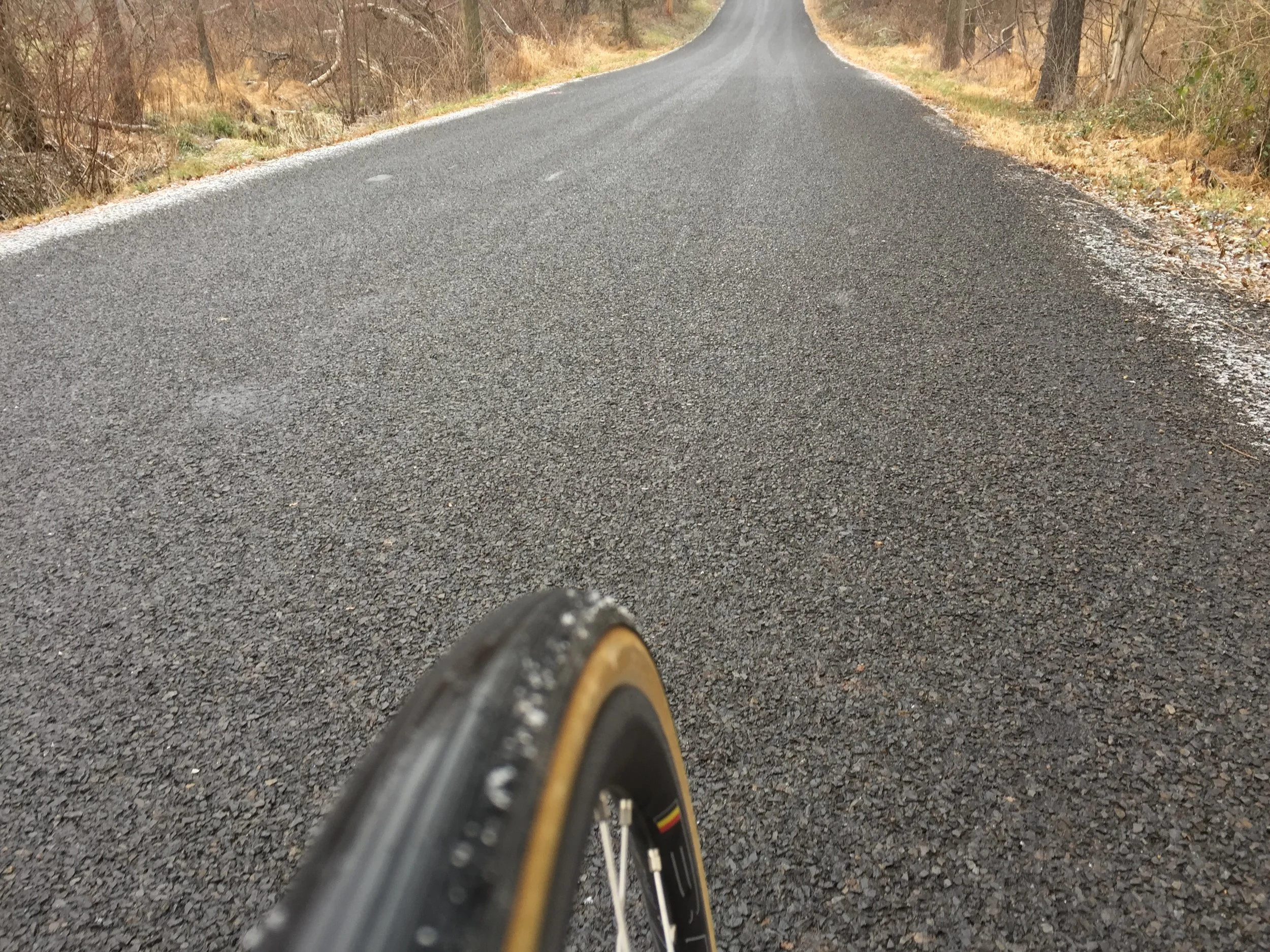Review: How Cycling Can Save the World (TarcherParigee)
(2017) According to the interwebs the idiom ‘preaching to the choir’ or more aptly ‘preaching to the converted’ can be traced back to the mid-1800s. In a svelte round of research the phrase was first used in 1867 by John Stuart Mill in a book as, “Dr McCosh is preaching not only to a person already converted, but to an actual missionary of the same doctrine.” It is a phrase that means one is educating the already informed. Or to be more precise, stoking the bases.
I can’t imagine I would come off as an unbiased reporter for a book about how cycling can save the world. Try as I might, I was already of the education that cycling can save the world. But among the 241 pages or the more than 300 citations of Peter Walker’s How Cycling Can Save the World I found so much more than what I was seeking. This book is not about expensive cycling rigs or lists of races in downtown exposures. It’s about how progressive cities have recognized the functionality of bicycles and have moved forward with prioritizing them in the infrastructure.
On display are two countries in particular that have recognized the two- wheeled mode of transportation as a problem solver. Denmark and Holland have spent the last several decades removing the short trips done by cars in other countries by replacing them with pedal power. The effect is incredible. Downtown traffic is a lot less congested and people are involved in their community. This doesn’t mean people don’t own cars in both European countries. It simply means the car remains parked for any short trips (which is the trip of preference for city dwellers). With stowed cars comes a strange side effect: instead of buying less at grocery stores, they actually bought more. The once-a-week trip was replaced with daily trips. Perhaps that was possible because of the money saved by keeping the car in the car park. So much for the argument of removing cars being a detriment to the economy.
It should go without saying that cycling is deeply therapeutic. Having residents of the United States in particular choose the bike over the car could make a major dent in the health care concerns of sedentary people. According to businessinsider.com, the average American walks well below the recommended daily distance by half. Americans only walk an average of about 2.5 miles per day. But instead of being proactive about health issues brought on by sedentary lifestyles, many choose to opt medical routes instead of obvious avenues such as cycling. Cycling is also healthy for the brain as it stimulates it through exercise. Riding a bike to work can have a person energized and more productive than the car driven commuter.
Even I thought I was conscious of my local trips until I visited Holland at the turn of the century. When I came back I realized just how wasteful my car trips had been. Driving to the convenience store was my own study in being pathetic. I tried to use the car less but found the lack of bike infrastructure an impediment. Or perhaps that was my excuse. For a couple of years I was rightfully called out for driving to my teaching job a scant three miles down the road. Strangely I wanted to get home quickly to ride my bike as long as possible during the season. Why not just ride to and from work?
How Cycling Can Save the World is heavy with facts and studies involving the benefit of incorporating proper bike lanes to promote going by bike. It also discusses the risqué topic of why cyclists are hated by motorists. Aside from the gear head pack mentality, it is a strange belief that cyclists ‘have it coming to them.’ Walker refreshingly points out something I’ve always wondered about: why do everyday humans get a ‘pass’ at threatening cyclists either through words, gestures, or social media posts? He calls out the odd double standard that should a threat toward a cyclists has the pronoun swapped out to threaten another social group, that person may actually face consequences. People threatening cyclists? Totally ok. He even talks about how cycling traffic fatalities rarely ever have a sentence to fit the loss of life.
To show Walker is without concern to stir up conversation, he devotes an entire chapter to the concept that cycling helmets are unnecessary. With a claim as bold as this, one would expect him to back it up with evidence. Much to the satisfaction of his research he does and does it convincingly. Peter Walker is like that for the entire book. He grabs our attention with a shot across the bow but then justifies it with over one citation per page. I dare anyone to poke holes in his thesis.
The problem is that this book is in the wrong hands. As a cyclist I am aware cycling is certainly the answer. Sometimes progressive mayors of cities recognize an opportunity such as London mayor Boris Johnson and set the cause back like Toronto mayor Rob Ford. He took it upon himself to dig up bike lanes and proclaim the road is for trucks and buses. These are the exact people who should have this book in their hands. It is proclaimed that the car is an outdated option; the 21st century will progress to ways to relieve congestion by pushing the car farther and farther to the recesses of developed areas.
Preaching to the choir was a phrase that was introduced in 1867. It’s of note that Pierre Lallement patented a year prior to this phrase the first pedal bicycle in the United States. With so many advancements in automobile technology from assisted parallel parking to electric cars, it’s sometimes amazing to watch the simple machine that dethroned the horse as a mode of simple transportation come back time and again. I am the choir Peter Walker is preaching to. However I’d like to think I am now converted. Instead of thinking of the next road bike to get, perhaps it’s time to start exploring the next mule bike to do the local chores. I’m sure after 150 years of pedals, I’ll be able to figure out the rest.




